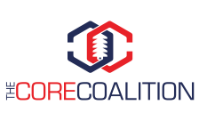The North American Grid System: A powerful asset for the United States and Canada
September 29, 2020

With extreme weather disruptions now a regular occurrence, it’s no surprise that the security, reliability and stability of power transmission all across North America is inextricably linked to a critical factor – the interconnection between American and Canadian bulk-power systems (BPS). Together, they form a single, larger and more robust system that can handle today’s energy challenges.
This same interconnection encourages a high degree of integration among asset owners, equipment manufacturers and the myriad of enterprises forming their supply chains. It also drives cooperation at all levels. Case in point: every year, Hydro-Québec sends elite crews of linemen to help American utilities facing major power outages. Hydro-Québec, as well as Hydro One (Ontario), New Brunswick Power, and Nova Scotia Power, are members of the North Atlantic Mutual Assistance Group (NAMAG), along with 17 American utilities. Among them, they serve over 44 million electricity and gas customers in 13 states, four provinces, and the District of Columbia. NAMAG members agree to provide service restoration assistance (personnel and equipment) for member utilities and their cutomers on a not-for-profit basis. This is just one of the many roles these organizations play in the North American grid system, a vital cross-border infrastructure that was built over decades. It also speaks to the strength of the alliance between the two countries.
The United States, Canada, and their BPS industry: A relationship that thrives on openness and trust
That goal is the ultimate rationale for Executive Order 13920 – Securing the United States Bulk-Power System, signed on May 1, 2020. Close collaboration with the industry that supports the bulk-power system can play an essential part in protecting it against “foreign adversaries.” One of the best ways to address this issue is to bolster collaboration within the industry, for example, by creating a working group representing all important Stakeholders – American and Canadian – in the supply chain. Such a level of cooperation is in line with the climate of openness and trust between the United States and Canada. Clearly, it’s win-win for the United States and Canada to continue to work closely together to maintain and increase grid resilience, which truly benefits American and Canadian consumers.
Fully integrated North American supply chains pay off for the U.S. and Canada
As is the case for cyber security, it’s in the best interests of the United States and Canada to see the BPS and the electric industry as a whole, (i.e. asset owners, manufacturers and their supply chains) and from a North American perspective. The electric industry and its suppliers form a dynamic, global business ecosystem that has been developed over decades. Manufacturers have invested billions of dollars in the United States and in Canada to develop their production capacities. Needless to say, they possess the resources and expertise not only to face the threats of cybercrime, but to ensure the continued reliability of the United States and Canada’s energy supply. There is an actual risk that tariffs or new regulations will have a financial impact on all energy sector stakeholders, including asset owners and their customers. That may well happen if the current DOC Section 232 investigation leads to the imposition of tariffs on Canadian-made power transformers or one of their core components, grain-oriented electrical steel. In short, tariffs as a strategy are counterproductive and will damage both the US and Canadian economies. Given the long history of cooperation between our two countries, there is still hope that the North American collaborative spirit will lead to other productive solutions that will benefit all parties.
About AIEQ
The Association de l’industrie électrique du Québec (AIEQ) is a trade organization established over a century ago to promote the interests of the electric power industry of Québec. Its diversified membership base includes many key players in Québec’s – and the world’s – electric industry: utilities, asset owners, original equipment manufacturers, value-added resellers, engineering firms, private and public research organizations, et al. AIEQ and its members belong to a global business ecosystem that supplies products and services to the energy sector all across North America.

0 Comments